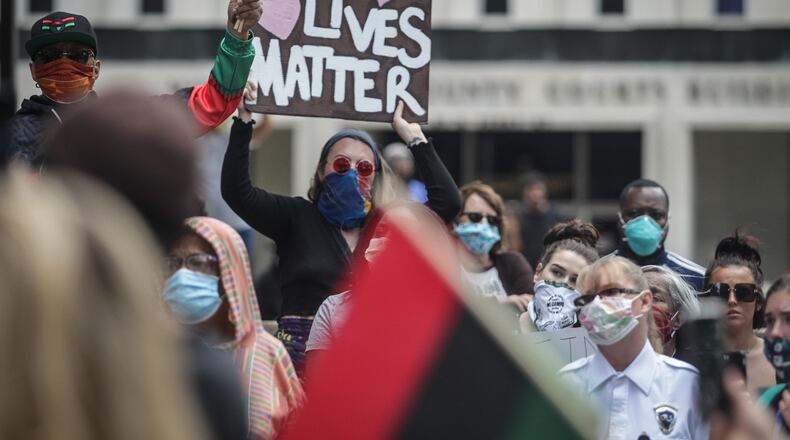This guest column appeared on the Dayton Daily News Ideas and Voices page Friday, June 26.
Racism is undoubtedly a public crisis, as it structures belonging, opportunity and assigns value based on how a person looks.
It results in conditions of concentrated advantage and disadvantage.
Racism hurts the health of our country and communities by keeping some from the opportunity to attain their highest levels of health, which indirectly impacts the entire community.
Racism is a web operating at every level in society through the social determinants of health including housing, education, health care, access to food and employment.
Due to historical disinvestment, marginalized groups are often negatively impacted the most.
>> George Floyd mural vandalized with Confederate flag, ‘KKK’ and ‘WLM’
Why is it important to name racism as a public health crisis and what does that mean for Dayton and Montgomery County?
As stated in our proposal, “By redefining racism as the embedded and entrenched belief system, we can create new ways of living, policing and governing, as well as ways of distributing resources more equitably because we see our collective common interests.” By naming racism a crisis, the momentum of this moment enables us to begin having honest anti-racism conversations through all sectors of society: social work, law, counseling, medicine, sociology, etc.
According to amaha sellassie, this “is a step toward addressing the underlying issue of systemic racism utilizing an anti-racism lens to examine the structural determinants of health, i.e. who is making the decisions that have outcomes and why.”
Now is the time for the vulnerable and marginalized populations to declare their voice at the table holding everyone accountable. This declaration will provide funding through grants and donations, inclusion in operating budgets and, most importantly, new legislation.
Ultimately it’s an ongoing working project that requires the community to engage collectively with each other for the purpose of equity across the board and accountability.
Operationalization of the declarations from the city and county are emerging and it will be important that the community be engaged and for us to engage the community. Transparency is the priority as this moves forward with task committees being formed and other community organizations coming on board, committed and engaged in the work.
Our work group is genuinely committed to this work.
Never did we think that we would see the day when racism would be declared a public crisis in the community in which we live, work and engage. Nor did we think it would be part of national conversations.
It truly is a new day and we are grateful to participate in the space of collective change.
About the Author

